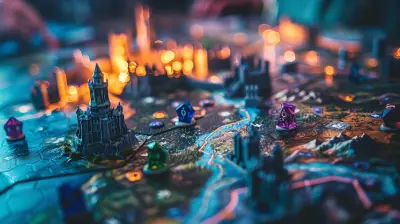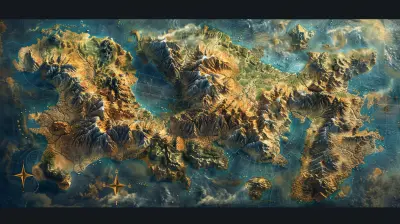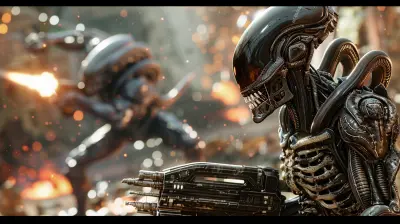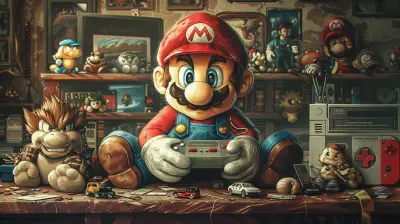The Power of Collaboration in Kickstarter Games
19 April 2025
Ever backed a Kickstarter game and watched it grow into something incredible? There’s something magical about seeing a game you’ve supported go from an idea to a fully realized experience. But what’s even more fascinating is how collaboration fuels these projects. From developers teaming up with artists to the backer community actively shaping the project, the power of collaboration in Kickstarter games is like the secret sauce that turns good ideas into unforgettable adventures.
Now, let’s dig deeper into how this works. Let’s talk about why collaboration isn’t just a buzzword—it’s the backbone of many successful Kickstarter games.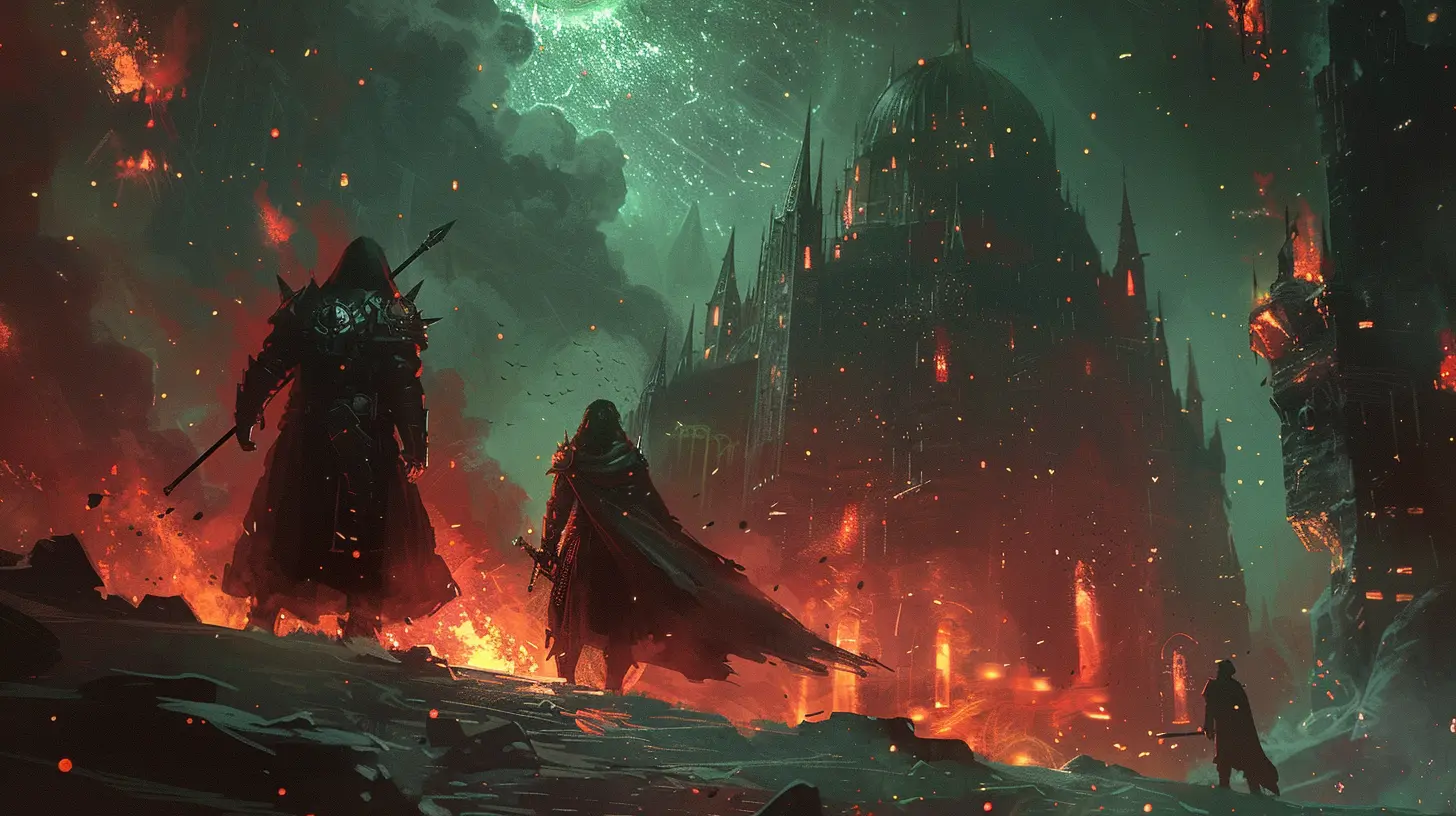
What Makes Kickstarter Games So Special?
Before we dive into the whole collaboration thing, let's take a moment to appreciate just how unique Kickstarter games are. Kickstarter isn’t like your typical game publisher. It’s a crowdfunding platform where independent creators pitch their ideas, set a funding goal, and let the community decide whether to invest. It's like a digital stage, where underdogs and dreamers showcase their visions.Why does collaboration matter here? Well, Kickstarter isn’t just about raising money—it’s about building a community. Unlike a traditional game studio, Kickstarter projects thrive on feedback, trust, and a shared sense of purpose between creators and backers. It’s not "us vs. them." It’s "we’re in this together." Without collaboration, these projects would just be empty promises. With it? They can become gaming legends.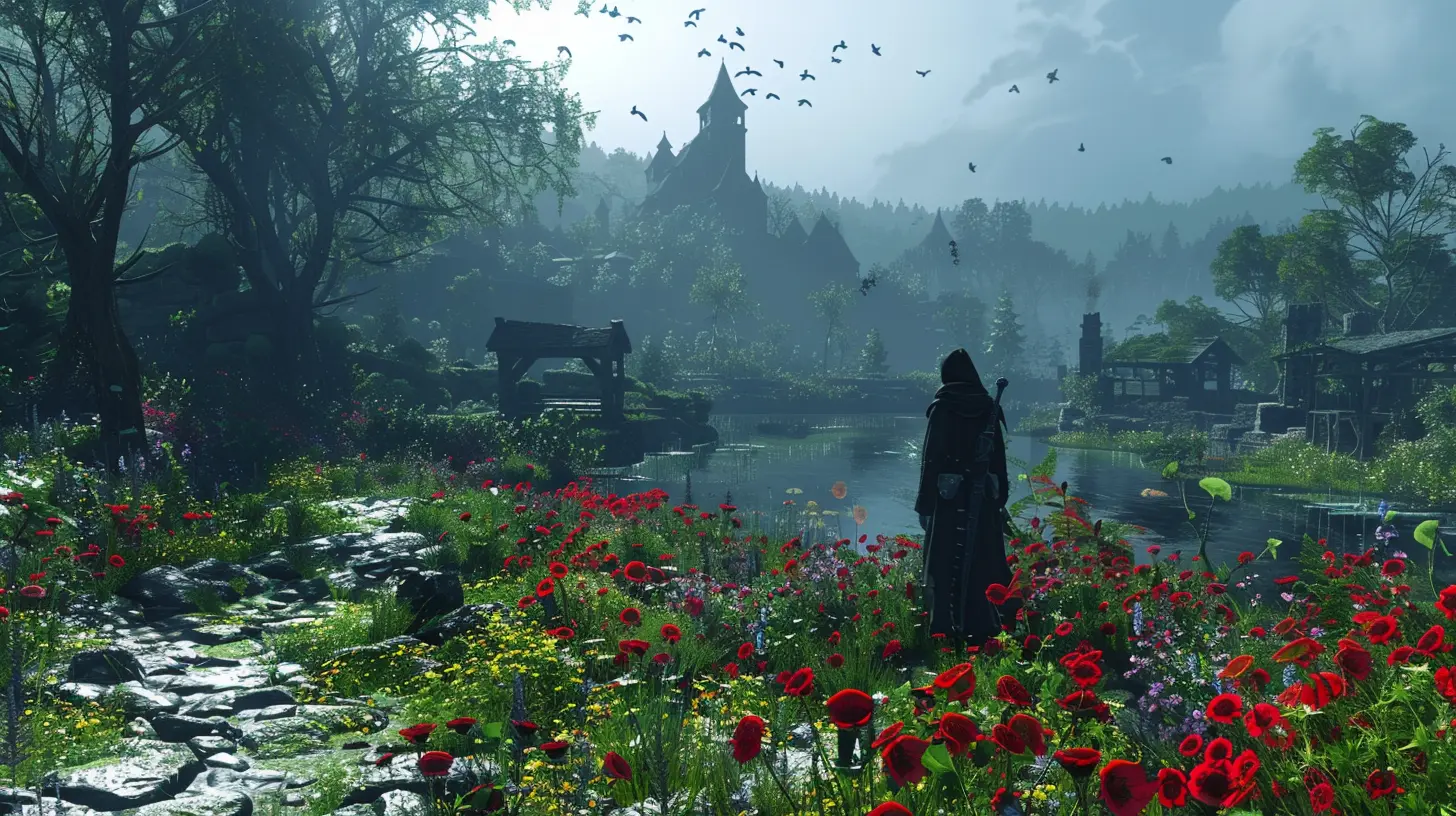
Teamwork Makes the Dream Work—Literally
One of the reasons collaboration works so well on Kickstarter is because game development isn’t a solo journey. Sure, a developer might have a killer idea, but turning it into a playable game often means wearing a million hats—coding, designing, animating, marketing... you name it.Enter collaboration. Many Kickstarter games are the result of small, scrappy teams pooling their skills and resources. For example, a passionate programmer might partner with a creative artist or a talented composer to bring their vision to life. Together, they create something far greater than what they could have achieved alone.
Think of it like assembling a superhero team. Each member brings their unique powers to the table. Individually, they’re cool. But together? They save the day.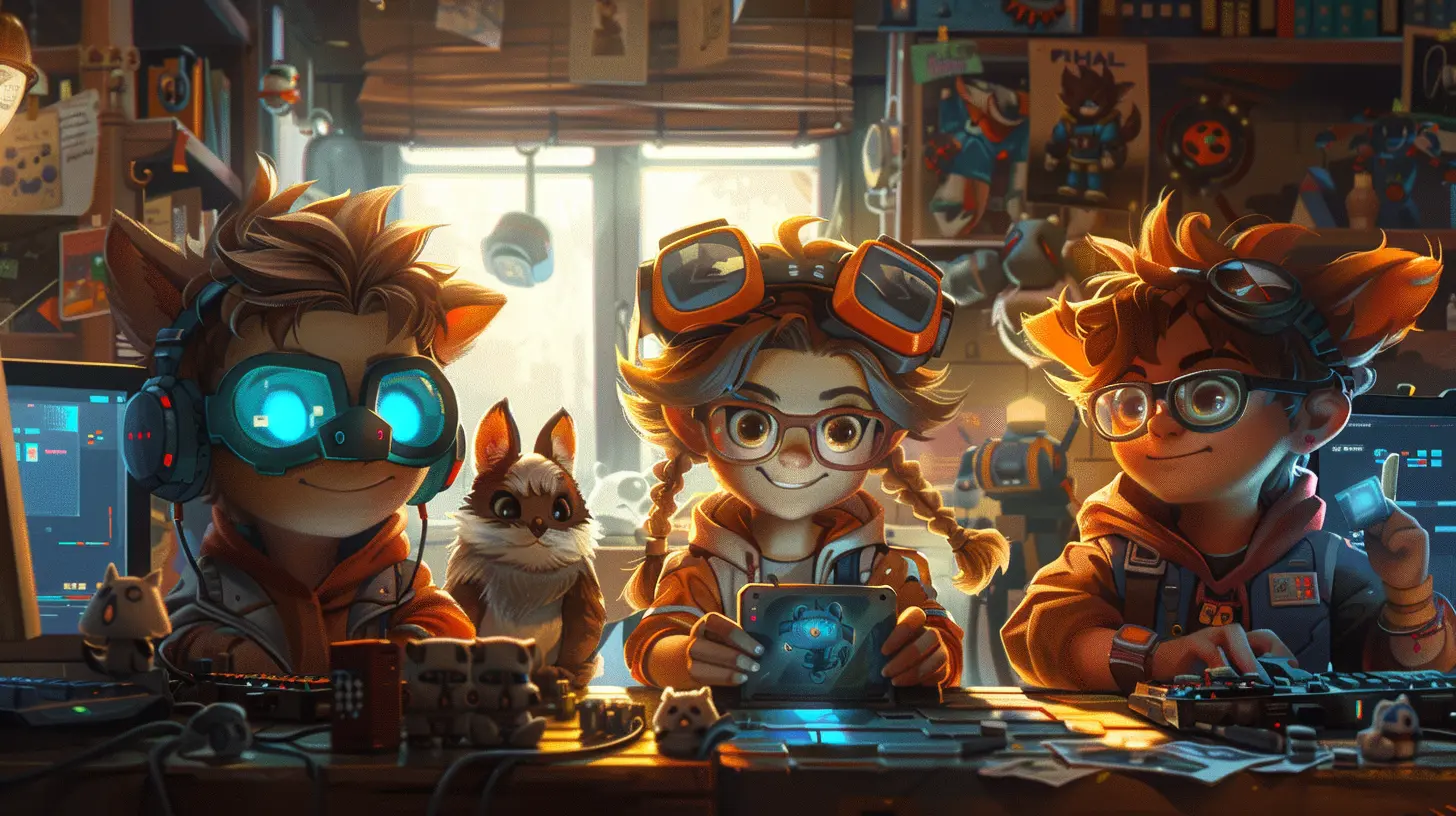
Backers: The Unsung Heroes of Collaboration
Here’s where Kickstarter gets really interesting—and super unique. In the world of crowdfunding, backers aren’t just throwing money at a project and hoping for the best. They’re an active part of the collaboration process. In fact, they’re often as important as the developers themselves.Kickstarter campaigns usually include stretch goals, polls, and updates that allow backers to weigh in on key decisions. Want to decide what the protagonist looks like? Vote for it. Think the game could use a boss fight in the third act? Suggest it in the comments. Backers get a front-row seat in shaping the game.
This back-and-forth creates a sense of ownership. Backers feel like they’re part of something bigger, and developers gain insights they might never have considered. It’s like having hundreds—or even thousands—of extra pairs of eyes to polish and perfect the final product.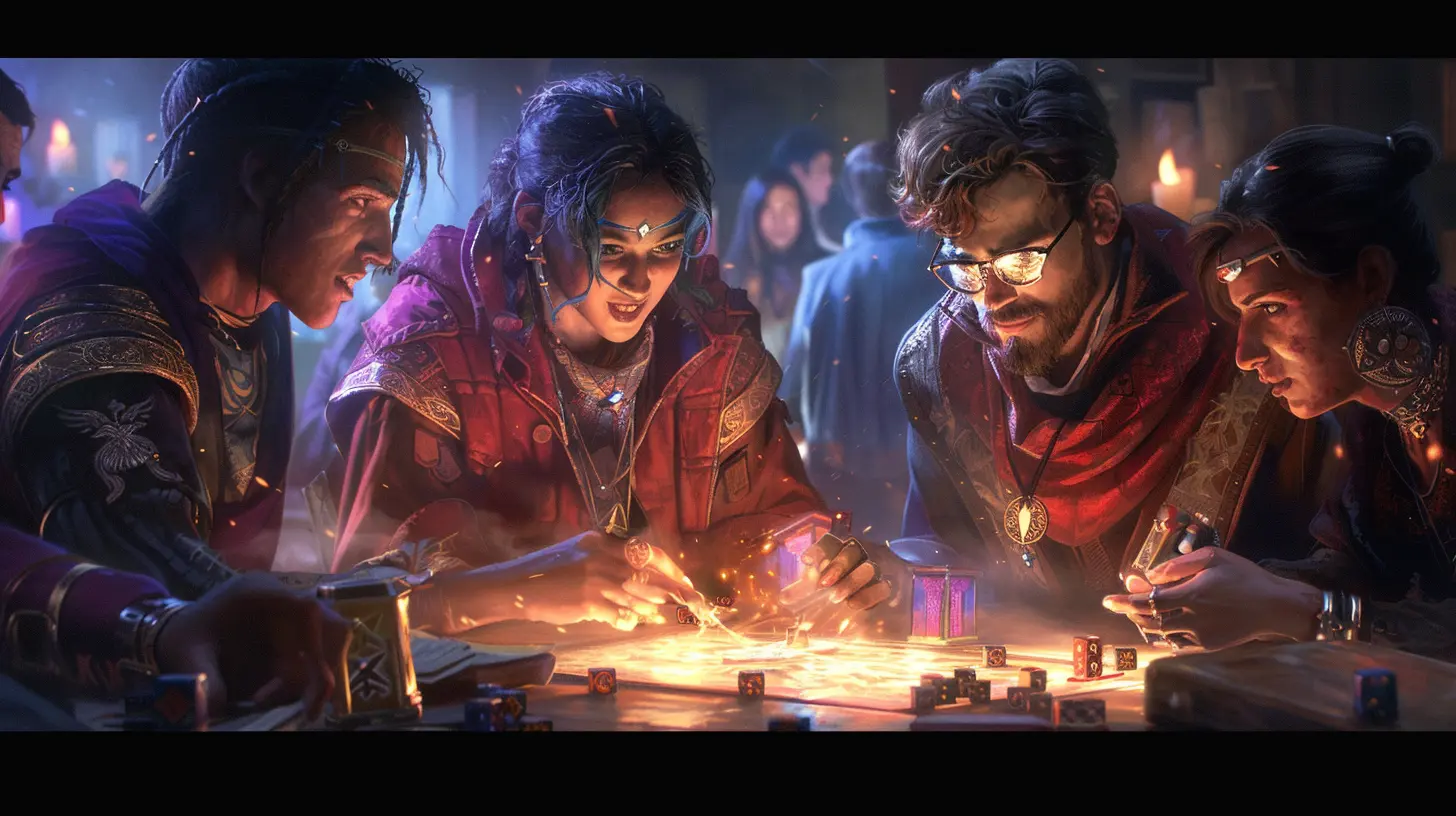
Success Stories: Collaboration in Action
If you’ve been following the Kickstarter gaming scene, you’ve probably seen some epic success stories that showcase collaboration at its finest. Let’s look at a few examples of how teamwork and community involvement have turned games into Kickstarter legends.1. "Shovel Knight" by Yacht Club Games
Remember "Shovel Knight"? This retro-style platformer blew up on Kickstarter back in 2013. While Yacht Club Games was a small team, they actively involved their backers in the creation process. From design tweaks to additional features like extra campaigns and co-op play, they listened to the community. The result? A game so polished and beloved, it practically became an indie icon.2. "Divinity: Original Sin" by Larian Studios
This RPG powerhouse wouldn’t exist without its backers. Larian Studios used Kickstarter not just for funding but for feedback. Backers helped refine gameplay mechanics, suggested quality-of-life improvements, and even contributed to world-building ideas. Today, Divinity: Original Sin stands as one of the best RPGs of its generation.3. "Hollow Knight" by Team Cherry
Team Cherry’s "Hollow Knight" oozes charm and creativity. But it also showcases how crucial collaboration can be. Backers funded the project, gave invaluable feedback, and helped spread the word like wildfire. The cherry on top? The team exceeded expectations by adding tons of free post-launch content, much of which was influenced by its passionate community.These games prove that when creators and backers team up, they produce something truly special. Collaboration isn’t just a perk—it’s a game-changer.
Challenges of Collaboration (And How It’s Worth It)
Let’s keep it real for a sec. Collaboration sounds amazing, but it’s not all sunshine and rainbows. Navigating a Kickstarter campaign requires developers to juggle a ton of moving parts. Think about it: you’re balancing creative deadlines, managing backer expectations, and still trying to make the game you originally envisioned. It can feel like walking a tightrope.Another challenge? Too much feedback. While it’s great to get input from backers, not every idea can (or should) be incorporated. Developers sometimes have to say "no" to certain suggestions, which can be tricky when you’re trying to keep backers happy.
So, how do teams make it work? Communication is key. Regular updates, transparency, and honesty go a long way in keeping the collaborative process smooth. Combine that with a shared passion for the project, and you’ve got a recipe for overcoming even the toughest hurdles.
The Long-Lasting Impact of Kickstarter Collaborations
Here’s the thing: Kickstarter games don’t just benefit from collaboration during development. That spirit of teamwork often carries over long after the game launches. Many successfully crowdfunded games continue to foster strong ties with their communities through updates, DLCs, and even sequels.Why? Because these developers understand something many big-name studios forget: gamers crave connection. They want to feel like they’re part of something meaningful, not just another consumer grabbing the latest product. Collaboration isn’t just a means to an end; it’s the foundation of lasting relationships.
And in a world where gaming sometimes feels impersonal and profit-driven, that’s a breath of fresh air.
Why Collaboration Should Matter to You
So why does all of this matter to you, the gamer? Because collaboration in Kickstarter games is proof that communities can shape the future of gaming. When we work together—developers and players—we create experiences that resonate on a deeper level.If you’ve never backed a Kickstarter game before, maybe now’s the time to try. Look for a project that sparks your interest, join the conversation, and contribute your ideas. Who knows? You might just help create the next big indie hit.
And if you’re a developer with a dream? Don’t be afraid to ask for help. Build your team, invite your community to participate, and embrace the magic of collaboration. After all, the best stories are the ones we write together.
Wrapping Up
At its core, Kickstarter is about more than just games. It’s about people coming together to share their passions, pool their talents, and create something extraordinary. The power of collaboration in Kickstarter games isn’t just a happy accident—it’s a deliberate, strategic approach to making amazing things happen.From small teams to huge communities, everyone plays a role. So whether you’re a developer dreaming up your next project or a gamer looking to support something fresh and innovative, always remember: collaboration is what turns dreams into reality.
all images in this post were generated using AI tools
Category:
Kickstarter GamesAuthor:

Emery Larsen
Discussion
rate this article
5 comments
Vivian McGivern
Love this article! Collaboration truly fuels creativity in Kickstarter games—exciting times ahead for gamers!
May 7, 2025 at 5:15 PM

Emery Larsen
Thank you! I'm glad you enjoyed the article. Collaboration really does spark creativity in the gaming world!
Zephyrae Willis
This article brilliantly highlights how collaboration in Kickstarter games cultivates creativity and innovation. By leveraging diverse skill sets and community support, developers can create richer, more engaging experiences. It's a testament to the power of collective effort in the gaming industry.
April 27, 2025 at 2:54 PM

Emery Larsen
Thank you for your insightful comment! I'm glad you enjoyed the article and appreciate your thoughts on the impact of collaboration in fostering creativity and innovation in Kickstarter games.
Damon Sharp
Collaboration truly elevates the magic of Kickstarter games!
April 23, 2025 at 3:09 AM

Emery Larsen
Absolutely! Collaboration brings diverse ideas together, fostering creativity and innovation that enhances the overall gaming experience.
Darrow McGhee
This article highlights the vital role of collaboration in Kickstarter games. By bringing together diverse skills and perspectives, creators can enhance their projects, attract backers, and foster community engagement. It’s inspiring to see how teamwork can transform innovative ideas into successful gaming experiences.
April 20, 2025 at 4:01 PM

Emery Larsen
Thank you for your insightful comment! I completely agree—collaboration truly elevates creativity and strengthens community ties in the Kickstarter gaming space.
Joy Sullivan
Great insights! Collaboration truly enhances creativity and innovation in Kickstarter games. It's inspiring to see how teams can bring unique visions to life through shared passion and resources.
April 20, 2025 at 3:11 AM

Emery Larsen
Thank you! I'm glad you found the insights valuable. Collaboration really is a powerful driver of creativity in Kickstarter games!
